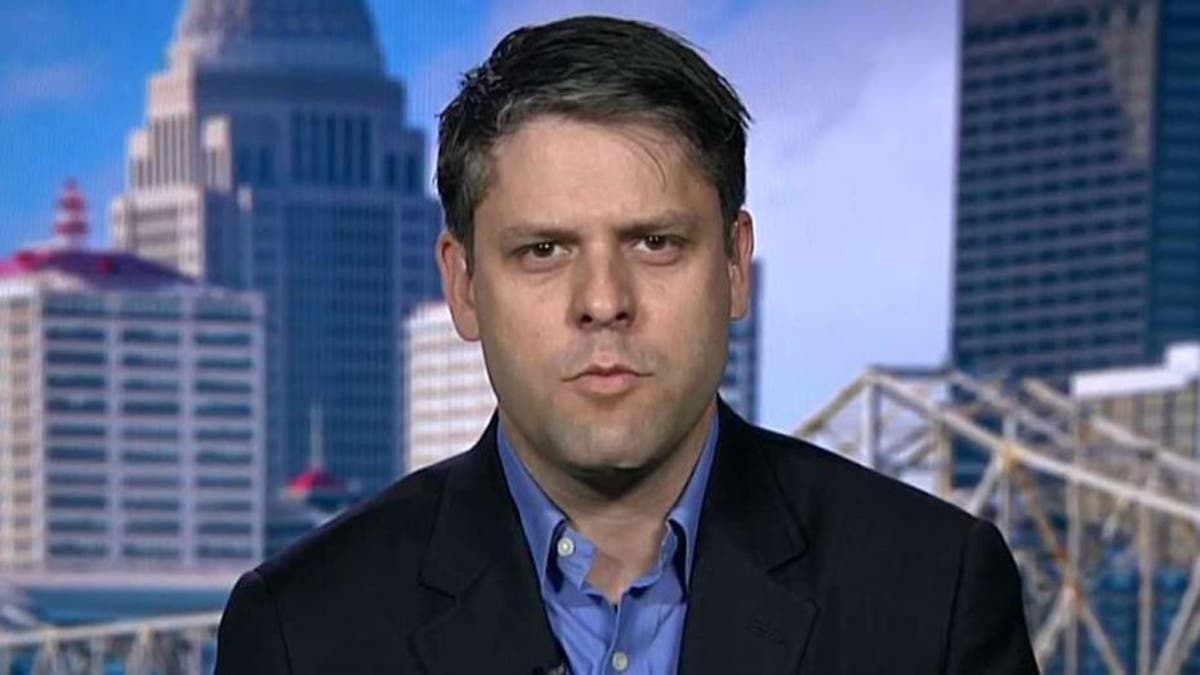Fox News Flash top headlines for April 30
Fox News Flash top headlines are here. Check out what's clicking on Foxnews.com.
Get all the latest news on coronavirus and more delivered daily to your inbox. Sign up here.
Judge Justin Walker, a recently appointed federal district judge in Kentucky and the nominee to the U.S. Court of Appeals for the D.C. Circuit, has a resume that marks him as among the most talented lawyers of his generation.
Walker graduated summa cum laude and Phi Beta Kappa from Duke University and magna cum laude from Harvard Law School, where he served as an editor of the Harvard Law Review. After law school, he clerked on the D.C. Circuit for then-Judge Brett Kavanaugh and on the Supreme Court of the United States for Justice Anthony Kennedy.
After his clerkships, Judge Walker worked at one of the premier law firms in the country before returning home to Kentucky to teach law at the University of Louisville. A law professor’s job entails not only teaching students but also writing articles — examining legal doctrines, reviewing historical sources and otherwise providing critical analysis to improve all aspects of the legal field.
In this way, working as a law professor has often been described as useful preparation for an appellate judgeship. Judge Jenny Rivera of the New York Court of Appeals, for example, has explained: “Being a law professor prepared me well for the job of appellate judging. I thought deeply about legal issues, researched, and wrote.” For precisely this reason, law professors are not infrequently appointed to the U.S. Courts of Appeals.
More from Opinion
Working as a law professor — on top of clerking for two of the nation’s leading jurists — has prepared Judge Walker well to serve on the D.C. Circuit. A review of his legal scholarship shows that he is someone who has thought deeply about the sort of hard constitutional-law issues that he may be called upon to decide — and reveals someone who pays careful attention to the Constitution’s design, especially its separation of powers.
Consider the divide between the legislative and executive branches. Under the Constitution, the legislature is supposed to enact our laws while the executive is only supposed to execute those laws. Yet today, the legislative branch frequently delegates its authority to enact laws to executive branch agencies — and even sometimes insulates those agencies from presidential control.
In his most recent law review article, Judge Walker discussed the challenges to democratic accountability — and our constitutional structure — posed by this state of affairs.

Judge Justin Walker, the nominee to the U.S. Court of Appeals for the D.C. Circuit.
What happens when Congress delegates its lawmaking authority to the executive branch? As he explained, the Constitution requires new laws to be enacted by both houses of Congress and signed by the president, “a difficult process designed to preclude laws that lack sufficient popular support.” But, he continued, that process is evaded when Congress punts to “unelected policymakers in administrative agencies.”
Working as a law professor — on top of clerking for two of the nation’s leading jurists — has prepared Judge Walker well to serve on the D.C. Circuit.
What happens when judges defer to legal interpretations offered by administrative agencies? Administrative agencies can achieve their preferred policies, he noted, “even when judges believe[ ] the best reading of the authorizing statute preclude[s]” those policies.
CLICK HERE TO SIGN UP FOR OUR OPINION NEWSLETTER
What happens when Congress can insulate administrative agencies from presidential control? Then the laws that govern us, he wrote, “are passed not by the people, not by the people’s representatives, and not by an executive agency accountable to the people’s elected president, but by independent administrators who are accountable to no one — including and especially the people.”
Or take the divide between the legislative and judicial branches. The Constitution endows judges with life tenure and salary protections so that they could decide cases impartially and without external influence, including congressional influence. As Alexander Hamilton put it in Federalist No. 78, the Constitution insulated judges so that they could serve as “the bulwarks of a limited Constitution against legislative encroachments.”
CLICK HERE TO GET THE FOX NEWS APP
In another recent law review article, Judge Walker identified an understudied potential threat to judicial independence — congressional control over the federal judiciary’s internal correspondence and employee hiring. In analyzing this potential problem, he examined at length the Constitution’s text, structure, history and practice before concluding that, in his view, if there is “an inherent executive power over selecting subordinates and protecting privileged communications,” as many scholars argue, “then similar text, structure, history and practice provide strong evidence of an inherent judicial power over selecting subordinates and protecting privileged communications.”
If confirmed, Judge Walker would bring this sort of thoughtful and perceptive analysis to the constitutional and other issues he would face on the D.C. Circuit. He is a stellar selection, and we urge his swift confirmation.
CLICK HERE TO READ MORE BY MICHAEL DAVIS
David Feder is co-author (with Justice Neil Gorsuch) of "A Republic, If You Can Keep It." Feder also previously clerked for Justice Gorsuch. He is an appellate attorney in Los Angeles.









































